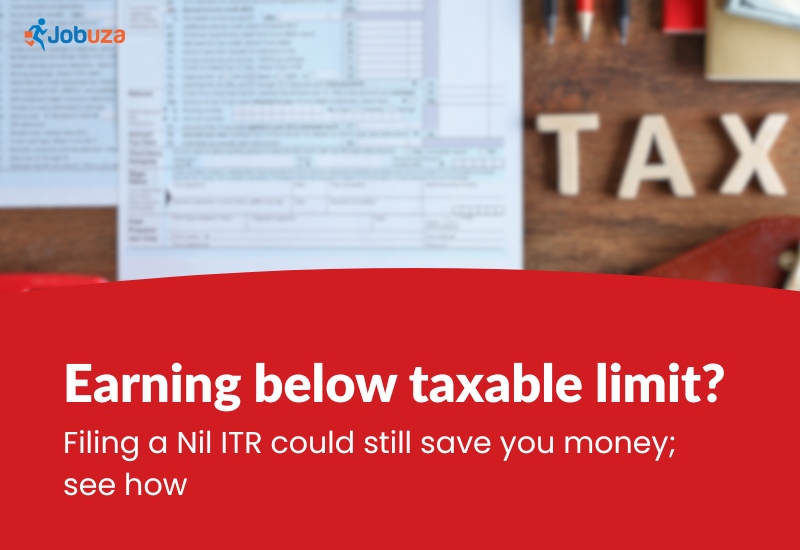Why Filing a Nil ITR Matters – Even If You Have No Taxable Income
A Nil Income Tax Return (ITR) refers to a tax return filed by an individual who has no tax liability—meaning their total income falls below the basic exemption limit as defined by the Income Tax Department. At first glance, filing may seem unnecessary if your income is non-taxable. However, filing a Nil ITR can offer significant financial and legal advantages.
What Is a Nil ITR?
A Nil ITR is simply an income tax return filed to declare that you had zero taxable income in a given financial year. It’s commonly filed by students, homemakers, retired individuals, or early-career professionals whose income does not exceed the exemption limit.
Despite not being mandatory in all cases, filing a Nil ITR can still be a smart move—especially if you expect to apply for a visa, loan, or tax refund, or want to build a financial history.
Key Benefits of Filing a Nil ITR
1. Claiming Tax Refunds (TDS Recovery)
Even if your income is below the taxable limit, banks and financial institutions may deduct Tax Deducted at Source (TDS) on your interest income or freelance payments. Filing a Nil ITR allows you to reclaim this amount.
2. Helpful for Loan and Visa Applications
A filed ITR, even a Nil one, serves as a proof of income. Many banks and consulates require ITR copies for loan processing and visa applications. It signals financial credibility, even without taxable income.
3. Mandatory for Certain Asset Declarations
If you own foreign assets or earn income from abroad, filing an ITR is legally required—even if your income is not taxable. Non-compliance can lead to penalties or legal complications.
4. Carry Forward Losses
To carry forward losses from capital markets or business income, you must file an ITR before the due date. A Nil ITR helps in maintaining continuity for setting off such losses against future gains.
5. Compliance in High-Value Transactions
If you’ve:
-
Deposited over ₹1 crore in a current account,
-
Spent more than ₹2 lakh on foreign travel, or
-
Paid electricity bills over ₹1 lakh,
You are mandated to file an ITR, regardless of your income level.
Basic Exemption Limits (FY 2024–25)
Here are the current exemption thresholds based on age and tax regime:
Under the Old Tax Regime:
-
Below 60 years: ₹2,50,000
-
60 to 80 years (Senior Citizens): ₹3,00,000
-
Above 80 years (Super Senior Citizens): ₹5,00,000
Under the New Tax Regime:
-
A uniform exemption limit of ₹3,00,000 for all individuals
Important Dates for Nil ITR Filing
The due date for filing a Nil ITR is the same as regular returns—generally 31st July of the assessment year. However, for FY 2024-25, the deadline for non-audit cases has been extended to 15th September 2025.
If you miss the deadline, you can still file a belated Nil ITR—and the good news is, no late filing fees apply if your total income is below the exemption limit.
Tax Rebate vs. Nil ITR
Even if your income technically falls within a taxable range, rebates under Section 87A may reduce your tax liability to zero:
-
Old Regime: Rebate up to ₹12,500
-
New Regime: Rebate up to ₹25,000
In such cases, though you owe no tax, filing an ITR is still beneficial for record-keeping, claiming refunds, and financial compliance.
Final Thoughts
Filing a Nil ITR is more than a formality. It helps you stay compliant, build financial credibility, and unlock opportunities like loan approvals, visa clearances, and TDS refunds. With no penalties for late Nil filings and plenty of benefits to gain, there’s every reason to file—taxable or not.


